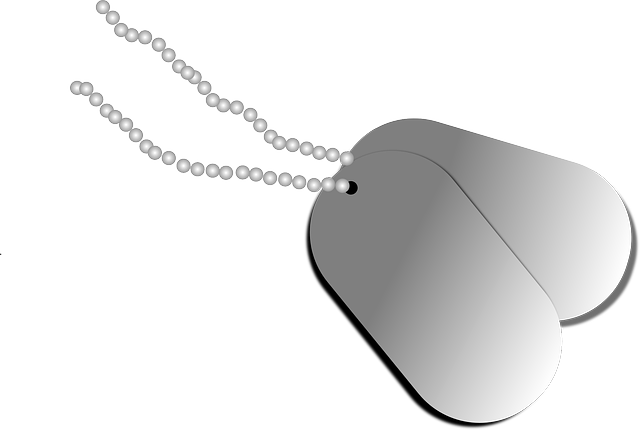When purchasing a used car, it's imperative to perform a VIN check to gain insight into the vehicle's history, including past accidents, salvage titles, and recall notices. A VIN reveals the car's make, model, year, and manufacturing details, as well as any significant events that could affect its safety and value. In today's market, where VIN fraud is common, a thorough VIN analysis protects buyers from deceptive practices by confirming the vehicle's true history. This check is vital to prevent the purchase of cars with undisclosed issues, ensuring potential buyers make informed decisions based on accurate information about their prospective vehicle's condition and background.
Every used car harbors a narrative, one that can range from smooth rides to hidden hiccups. A vehicle’s history, encoded in its VIN, can unveil tales of past accidents, salvage titles, or even theft. As the prevalence of VIN fraud swells, discerning the authenticity of a car’s story becomes paramount. This article delves into the critical role of VIN checks in safeguarding your investment against unseen troubles. We will explore the intricacies behind every Vehicle Identification Number, the escalating issue of VIN fraud, and the steps to conduct a thorough VIN analysis. By understanding what a VIN reveals, car buyers can steer clear of vehicles with concealed issues, ensuring their next automotive acquisition is nothing short of reliable.
- Uncovering a Car's Hidden Past: The Importance of VIN Checks
- The Story Behind Every Vehicle Identification Number (VIN)
- VIN Fraud on the Rise: A Growing Concern for Buyers
- How to Perform a Comprehensive VIN Analysis
- Decoding the History: What a VIN Reveals About Your Used Car
- Protect Your Investment with VIN Fraud Detection
- Ensuring Your Next Purchase Isn't a Disguised Dud
Uncovering a Car's Hidden Past: The Importance of VIN Checks

When contemplating the purchase of a used vehicle, a Vehicle Identification Number (VIN) check serves as an indispensable tool in unveiling the car’s history. This comprehensive check transcends a mere inspection of the car’s exterior and engine performance; it delves into the annals of the vehicle’s past, revealing critical information that can influence your buying decision significantly. A VIN number is unique to each vehicle and encodes a wealth of data about its origins, maintenance history, recalls, and any previous accidents or damage. By running this number through a trusted database, potential buyers can uncover whether the car has been involved in significant collisions, salvaged after being totaled, or reported stolen. This information is pivotal in assessing the structural integrity and overall reliability of the vehicle, allowing you to avoid hidden issues that could lead to costly repairs down the line. In an era where fraudulent activities, including VIN cloning, are on the rise, a thorough VIN analysis has become a safeguard against deceptive practices. It acts as a vigilant detective, ensuring that what you see is indeed what you get, and that your next vehicle isn’t hiding a troubled past beneath its hood.
The Story Behind Every Vehicle Identification Number (VIN)

Every Vehicle Identification Number, or VIN, is a unique identifier that encapsulates the history and characteristics of a vehicle. This 17-character code carries within it the story of the car’s make, model, year, assembly plant, and line, as well as critical safety and compliance information. Beyond these specifications, the VIN can also disclose whether the vehicle has been subject to significant damage, has been previously stolen or salvaged, or has a history of accidents that might affect its safety and performance. This depth of information serves as an invaluable tool for potential buyers, allowing them to peel back the layers of a car’s past and assess its true condition.
In the current automotive marketplace, where used vehicles frequently change hands, the importance of VIN verification cannot be overstated. With the rise of VIN fraud, where criminals alter or clone VIN numbers to conceal a vehicle’s adverse history, potential buyers are increasingly at risk of making costly and potentially dangerous purchasing decisions. A thorough VIN analysis, performed by reputable services, acts as a safeguard against such deceptions. It empowers consumers to uncover the truth behind a car’s story, ensuring they are making an informed decision rather than blindly stepping into someone else’s narrative, which may include hidden repairs, salvage titles, or a history of neglect that could compromise their safety and enjoyment of the vehicle.
VIN Fraud on the Rise: A Growing Concern for Buyers

The Vehicle Identification Number, or VIN, is a unique identifier for every car on the road. It encapsulates the history of a vehicle, including details about its manufacturing, specifications, and any significant incidents it may have been involved in. As the second-hand car market flourishes, savvy buyers are increasingly turning to VIN checks as a safeguard against potential pitfalls. Regrettably, as awareness of the VIN’s significance grows, so does the sophistication of fraudulent activities involving these numbers. Reports indicate a surge in cases where criminals alter or clone VINs to disguise a vehicle’s true history, often to conceal damages from past accidents or to sell stolen cars. This VIN fraud is becoming a growing concern for buyers who rely on the authenticity of this information to make informed decisions. The implications are stark: without a reliable VIN analysis, consumers risk purchasing vehicles with hidden defects or even unknowingly supporting organized crime. It’s a scenario where due diligence is not just recommended but essential. Thus, conducting a comprehensive VIN check has become an indispensable step in the car-buying process, acting as a detective’s lens to peel back layers of deception and ensure that what you see is indeed what you get—a reliable ride, free from someone else’s history.
How to Perform a Comprehensive VIN Analysis

When considering the purchase of a used vehicle, conducting a thorough Vehicle Identification Number (VIN) analysis is paramount. The VIN serves as a unique identifier for every car, revealing critical information about its history. To perform a comprehensive VIN analysis, start by obtaining the VIN from the vehicle, which you can typically find on the dashboard near the windshield, on the driver’s side. This number should then be input into a reliable VIN decoding service or database. Such services can provide a detailed report that includes the car’s make and model, year of manufacture, engine specifications, and any recorded incident history such as accidents, flood damage, or odometer rollbacks.
Furthermore, a reputable VIN analysis will check against databases for signs of fraudulent activity, including VIN cloning or alteration. This is crucial given the rise in fraud involving altered VIN numbers. The report should also indicate if the car was previously reported stolen or has been declared a total loss due to extensive damage—information that is not always visible during a physical inspection. By leveraging these services, you can uncover hidden issues and make an informed decision about the vehicle’s reliability and value. It’s akin to having a seasoned detective sift through the car’s past, ensuring you are fully aware of what you might be driving into.
Decoding the History: What a VIN Reveals About Your Used Car

A Vehicle Identification Number, or VIN, is more than just an identifier; it’s a chronicle of your used car’s past. This unique 17-character code encapsulates critical information about the vehicle’s origin, history, and condition. By running a VIN check, you can uncover whether the car has been involved in accidents, has been declared a total loss and branded as salvage, or even if it was originally sold in a different region with varying safety standards. This thorough decoding process reveals the vehicle’s service history, including any recall notices or maintenance records, which can be pivotal in assessing its reliability and safety. It also verifies the car’s specifications such as engine size, transmission type, and body style. In essence, a VIN check serves as a window into the vehicle’s life story, allowing potential buyers to make informed decisions and avoid the pitfalls of purchasing a car with undisclosed issues. With the rise in VIN fraud, where criminal syndicates alter these numbers to disguise damaged or stolen vehicles, the importance of a meticulous VIN analysis cannot be overstated. It acts as a safeguard, akin to having a seasoned detective scrutinize every detail, ensuring that the vehicle you’re considering is not hiding a troubled past behind a facade of innocence.
Protect Your Investment with VIN Fraud Detection

When considering a pre-owned vehicle, it’s imperative to scrutinize its history to avoid potential pitfalls. A Vehicle Identification Number (VIN) check acts as a crucial tool in this process, serving as a digital fingerprint for every car. This comprehensive analysis can uncover whether the car has been involved in accidents, has salvage or branded titles, or worse, if it’s been stolen. The importance of VIN fraud detection cannot be overstated, especially given the rise in criminal activity involving altered VIN numbers. These manipulations are designed to deceive buyers into believing a vehicle is in better condition than it truly is. By employing a reputable service for VIN analysis, car shoppers gain invaluable insights, ensuring they’re making an informed decision and protecting their investment from the hidden risks that come with purchasing a used vehicle without proper verification. This diligence acts as a safeguard, much like having a knowledgeable detective on your side, to confirm that the vehicle you’re considering is indeed in the condition represented and not concealing a problematic past.
Ensuring Your Next Purchase Isn't a Disguised Dud

When considering the purchase of a used vehicle, due diligence is paramount to avoid hidden issues that could arise from a car’s past. A Vehicle Identification Number (VIN) check serves as a crucial step in the vetting process, offering insights into the car’s history. This check can reveal if the vehicle has been involved in accidents, reported stolen, or declared a total loss and branded as salvage. Such information is vital for potential buyers to make informed decisions. However, with the rise of VIN fraud, where criminals alter or clone VIN numbers to conceal a car’s true history, it’s become increasingly important to rely on reputable services for VIN analysis. These services can decode the VIN to provide an accurate account of the vehicle’s background, acting as a detective to uncover any deceptive practices and ensuring that your next vehicle purchase is not a disguised dud. By leveraging these checks, buyers can confidently invest in a reliable ride, free from someone else’s troubles. It’s a safeguard against the risks associated with the secondary car market, where a car’s true story might otherwise remain hidden until it’s too late.
When considering a pre-owned vehicle, a thorough VIN check emerges as an indispensable step in the decision-making process. It’s not just about the car’s mechanical condition or aesthetic appeal; it’s about understanding its history and ensuring that you’re not inadvertently becoming part of someone else’s narrative. With VIN fraud detection becoming increasingly sophisticated, potential buyers must harness this tool to avoid the pitfalls of deceptive practices. By doing so, you can confidently choose a vehicle that aligns with your needs and expectations, rather than inheriting issues hidden beneath a veneer of appearances. In essence, a VIN check is your lens into the car’s true story, safeguarding your investment and peace of mind as you navigate the used car marketplace.



